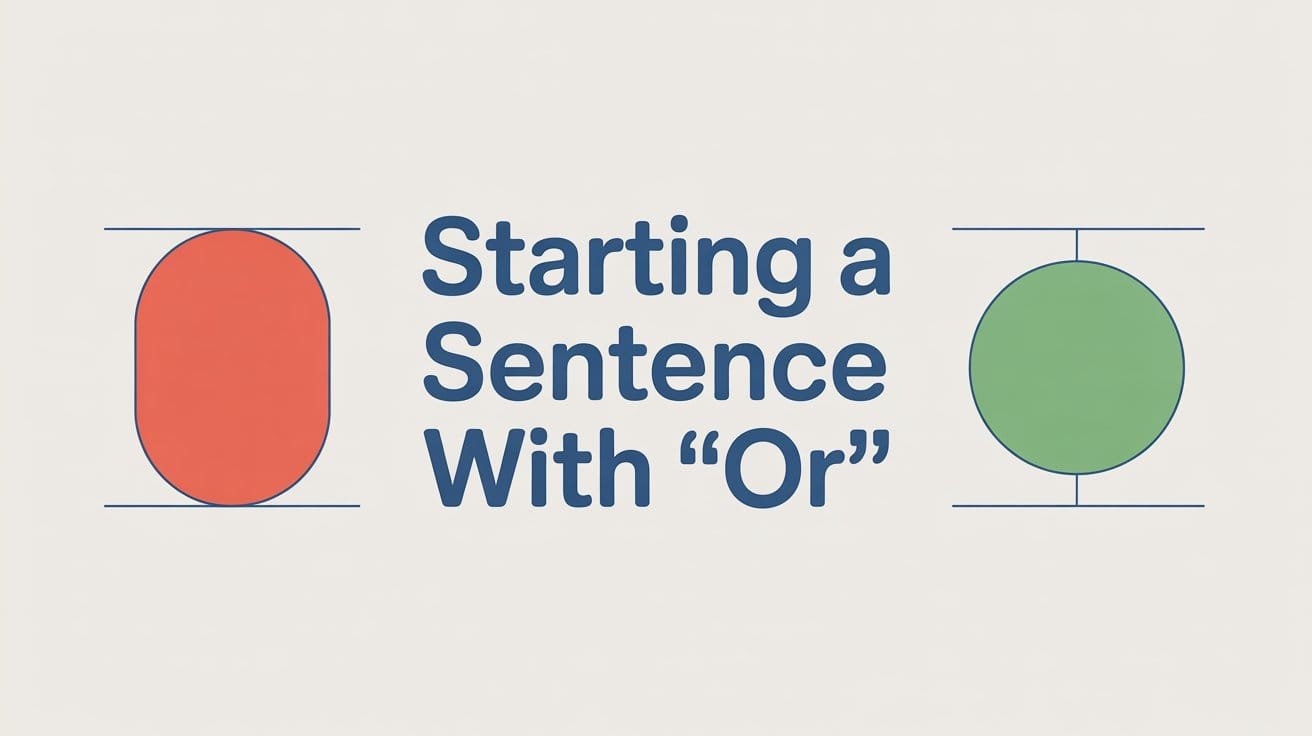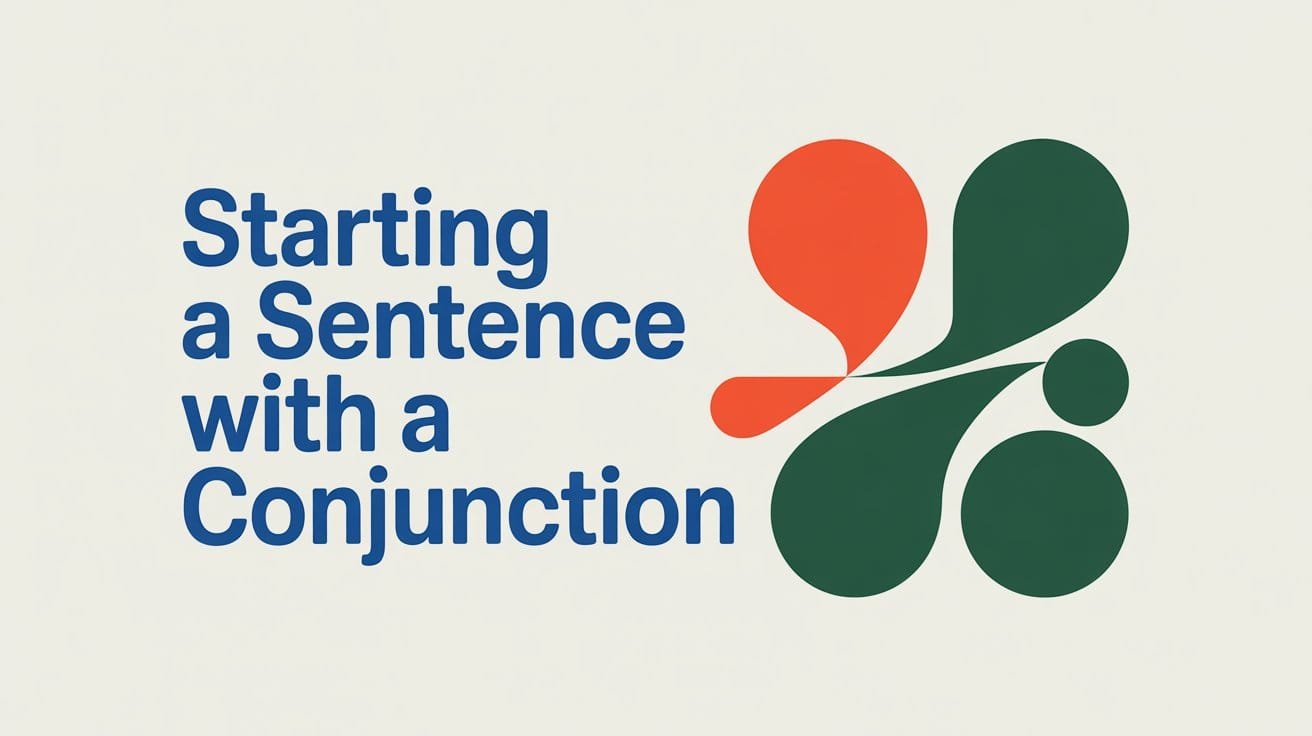Yes, you can start a sentence with or, but it should be done with care. Or is typically used to show an alternative, a choice, or a contrast. When placed at the beginning of a sentence, it usually continues an idea from the previous one or offers another possibility.
While it’s more common in informal or creative writing, or at the beginning of a sentence is acceptable as long as the sentence is clear, complete, and connected to the context.
Is It Correct to Start a Sentence with Or?
It is correct to start a sentence with or, especially when you are offering another option or emphasizing contrast. Writers often use it for variety, style, or to continue a thought without creating a run-on sentence.
However, like other coordinating conjunctions, or should not lead to a sentence fragment. The idea must be complete and make sense on its own.
Examples of Sentences Starting with Or
- You could try rewriting the paragraph. Or you could remove it entirely.
- He might be late. Or he may not show up at all.
- We could start with the budget. Or focus on the schedule first.
- You can take the train. Or wait for someone to give you a ride.
Each example offers an alternative and connects clearly to the sentence before it.
When to Avoid Starting a Sentence with Or
Although it’s grammatically correct, here are some cases where it’s best to avoid starting with or.
When the Sentence Is Incomplete
Always include a subject and a verb to complete the sentence.
❌ Or stayed home instead.
✅ Or she stayed home instead.
When the First Sentence Is Missing or Weak
Starting with or without giving the first option earlier can confuse the reader. Make sure the sentence that starts with or builds on a clear idea.
❌ Or we could take the bus.
✅ We could walk to the event. Or we could take the bus.
When It’s Used Too Often
Too many sentences beginning with or can make writing feel scattered. Use variety in sentence structure for better flow.
❌ Or we could try this. Or maybe that. Or something else.
✅ We could try one of several options: this, that, or something else.
In Very Formal Writing
In formal or academic writing, starting with or may sound too casual. It’s often better to rephrase. Use alternatives like otherwise, alternatively, or another option is when appropriate.
❌ Or the results could change next quarter.
✅ Alternatively, the results could change next quarter.
How to Use Or at the Beginning of a Sentence
- Use it to present a clear alternative or choice
- Make sure the sentence is complete and not a fragment
- Connect it logically to the idea that comes before
- Avoid overusing it in back-to-back sentences
Related Reading
- Can You Start a Sentence with And?
- Can You Start a Sentence with But?
- Can You Start a Sentence with Yet?
Final Thoughts
You can begin a sentence with or when you’re offering another possibility or emphasizing contrast. Just make sure the sentence is complete, connected to the previous idea, and clearly expressed. Used thoughtfully, or can improve flow and give your writing a natural, conversational tone.



